Arena – Winter 2024

|
In This Issue
- President’s Report, Winter Arena 2024 – Rita Schaad, NSW
- 2024 Annual Conference in Melbourne – ANZURA Conference Committee
- National Study Day Reflections 2024
- New Zealand Corner – Frances Potter, NZ
- Understanding People – Andrew Swadling, NSW
- Evolution and the Revelation – Rita Schaad, Newcastle
- Happy Little Agondonter – Stephen Carthew, SA
- Adorning Our Message with Truth, Beauty, and Goodness – Julian McGarry. TAS
- Information Centers – A Discussion Paper – Neil Francey, QLD
- For Reasons Right and Wrong – Neil Francey, Qld, Goldcoast
- About the Arena Newsletter – ANZURA Admin
|
|
Rita Schaad, NSW 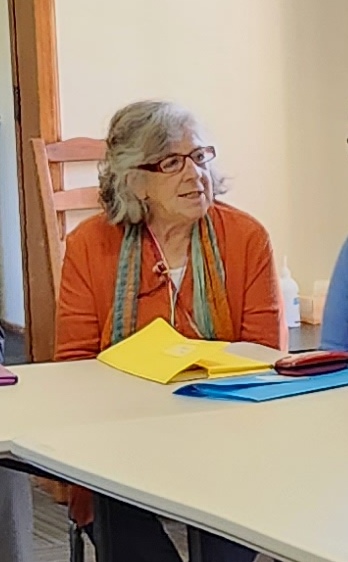 It’s one of those cold winter days and I appreciate being able to stay indoors, wrapped in warm clothes, listening to music, and having a hot cuppa handy while sending these greetings out to our members and friends.
It’s one of those cold winter days and I appreciate being able to stay indoors, wrapped in warm clothes, listening to music, and having a hot cuppa handy while sending these greetings out to our members and friends.
In the study group I attend every Wednesday, we sometimes come across the term
‘the fear of the Lord’ while we remind ourselves of the teachings of the Master who introduced his God as the loving Father in heaven.
But… we know what the early believers meant when using the word ‘fear’ – it was to convey their feeling of awe and respect for the grandeur of the God of all creation.
The fear of the Lord is the beginning of wisdom: and the knowledge of the holy is understanding. (Proverbs 9:10)
When the Master taught that we should accept the Truth from wherever it showed up, he knew that we would have to refer to our experiences and wisdom gained. For us to recognize and discern the Truth-Beauty-Goodness content in any message or action takes some time of reflection. We don’t have to be quick in our assessment, but we do well to pace ourselves when sifting and sorting all information pouring into our lives every day to arrive at a conclusion.
I’m always on the lookout for some technique for this task and found a thought worth pondering in the section on Energy and Pattern in Bill Sadler’s Simplification of the Foreword. (Click on the link to read on Urantia Foundation's website.)
“Pattern determines the shape or form that energy takes. An atom, has a precise pattern, with a nucleus and with electrons swinging around the central nucleus. But this pattern or form does not explain what holds the atom together. Pattern does not control the atom. It is gravity that controls the atom. Pattern does not control energy; gravity does. Pattern, itself, does not respond to gravity. Neither does space respond to gravity.
“…Space has nothing to do with pattern; it is something entirely different. The reason that pattern does not respond to gravity is because there is nothing in pattern which can respond to gravity. If we go back to the atom, we have the nucleus and the electrons swinging around it. The material mass of nucleus and the electrons does respond to gravity; pattern has no mass.
“In a human being, we have a body that has just so much mass; the body weighs just so many pounds; this weight in pounds is a measure of the pull of gravity on this human body. This human being might have a body pattern (appearance) that you would call beautiful. The "beauty" does not respond to gravity; the body does. This same comparison is true on the mind and spirit levels. The reality of any pattern (form) is determined by the stuff of which it is made.”
Does that mean if we exercise our mind with deep thinking on spiritual values (putting in some ‘stuff’) and practice divine attitudes in our actions, the gravity pull of the Son and Father will eventually draw us closer to a truth we can recognize, and our responses to it can shed light into those darker areas around us?
Sincere intentions are aiding in creating good habits and remember “practice makes perfect” ☺!
When looking at the wider international Urantia community, for instance Urantia Association International, efforts are being made in recognising what the needs of current and future students of The Urantia Book are. Endeavoring to implement new programs takes commitment from the leaders on the ISB (International Service Board) and IRC (international Representative Council). You can read all about it in the quarterly issues of Urantia Association’s Tidings newsletter. Here is the link to recent and passed issues: https://urantia-association.org/newsletter/ncategory/tidings/ (If you don’t already receive this very informative newsletter, and would like to, let us know and we’ll make sure you are added to Urantia Association’s mailing list.)
A report made to the Representative Council in April came from Canada. Mark Blackham (Canadian association President) talked about situations in Canada. After missing holding conferences since 2020, they are now looking forward to getting together this year in Autumn. Mark also talked about a few issues that are similar to ours here in OZ. While a few study groups are doing well, there is unfortunately no growth in new readers. The question of who will take over the roles of leadership in the future is a worry to many of us. Will social media and other such digital public platforms and meeting places be enough for those searching for information and answers to the BIG questions in life? The younger generations seem to flock to these new agencies instead of the traditional churches and associations. “The times they are-a-changing”! What would Jesus do??
Alain Cyr from Quebec commented that he was optimistic about the Progressive Divine Wisdom Group (PDWG), created by the late Moussa Ndiaye of Senegal, which has been attracting enthusiastic adherents among Association members in Canada. Several other members spoke highly of it.
Andres Ramirez from Colombia joined the Zoom meeting from the Bookfair in Bogota. Did you know that there are 15 countries in Latin America that have formed Urantia Associations? The latest one is Chile. The Urantia communities there are very much alive and active.
As we try to maintain contact with each other here in Australia, it is with continuous wonderment that we here in Australia and New Zealand can witness the growth and spread of the revelation overseas. (Maybe the teamwork of both the “Angels of the Churches” and the “Angles of Progress” have something to do with it.)
While we try to keep the flame alive that ignited many of us decades ago, we commit to keeping the fires going and keep everyone informed about our activities. The National Study Day was held on 1st of June; you will find some reflections from those study groups that met later in this issue.
More details are emerging for the annual gathering in Melbourne. Once again, we will make ourselves comfortable at the Edmund Rice Centre near Melbourne as we did in 2007. Preparations by our friends from Victoria are underway, so it’s time to mark it in your diary and register as soon as possible – as well as organizing your journey of course.
Talking about past conferences – there is an archive on our website, with as many details as we could collect, from these gatherings. It’s worth having a new look and getting reignited with the joy of being connected to our Urantia family. See: https://anzura.urantia-association.org/conference-archives/
|
|
ANZURA Conference Committee 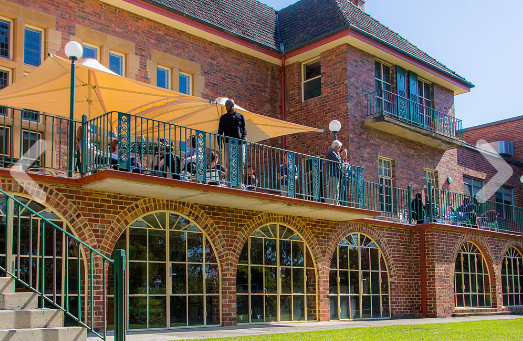
4 –7 October 2024
The year is slipping by so not long now for this year’s ANZURA Annual Conference which is being held 4 –7 October at the Edmund Rice Centre in Lower Plenty, Melbourne. Registrations are now open so if you are planning on coming please let us know soon. See further on for registration details.
Theme
Urantia Stock-Take – Past, Present and Future. How are we travelling? “Are we there yet”? If not, what do we need to do?
“Are we there yet”? Well, we’re working on it aren’t we? “How are we travelling?” and “What do we need to do to get there”? These are the big question we will attempt to tease out at this year’s conference. The information revealed in The Urantia Book is a treasure-trove of spiritual insight, cosmic revelation, and historical knowledge. The answers to these questions are all in there just waiting to be discovered. The importance and seriousness of this storehouse of priceless gems is almost beyond description. The unveiling of the true teachings of Jesus and who he actually was, and where he came from, gives power to those compelling teachings on Faith, Worship, Service, and Love. We need to be passionate about the entire Urantia revelation—from the Paradise Trinity down to the material worlds—to understand the significance of the big picture we are given of the past, present, and future of ourselves and the cosmos.
The world’s problem is the individual problem. Reality is made up of an accumulation of our decisions—the consequences of which fan out to the broader community. Each one of us can make a big difference when we embrace a true and living faith and when we are wholeheartedly dedicated to the doing of the Father’s will. This national gathering will give us the opportunity to enjoy the process of idealising our future. We can each bring our own understandings, interpretations, and experiences to the table and get those ideas out to the ‘movers and shakers’ of the Cosmos. Because we are all unique, we will naturally find different ways of sharing the teachings—let’s not forget what we are told about the apostles:
They made no effort to teach alike; there was no standardized or dogmatic formulation of theologic doctrines. Though they all taught the same truth, each apostle presented his own personal interpretation of the Master’s teaching. 148:1:2 (1657)
We hope you will join us in discussing this life and its challenges. We will refer to the material found in The Urantia Book and consider the hurdles and disruptions we face in achieving harmonious progress. We will discuss the role this information can play in helping us to grow spiritually and to become positive and valuable citizens. When we “dare to be Godlike” (160:1.12)—the fruits of the spirit make us spiritually fragrant providing the power to spread the “benign virus of love”.
If each mortal could only become a focus of dynamic affection, this benign virus of love would soon pervade the sentimental emotion-stream of humanity to such an extent that all civilization would be encompassed by love, and that would be the realization of the brotherhood of man. 100:4.6 (1098.3) emphasis added
“Freely have you received; therefore freely should you give of the truth of heaven, and in the giving will this truth multiply and show forth the increasing light of saving grace, even as you minister it.” 176:3.10 (1918.3)
Venue
The Edmund Rice Centre ‘Amberley’ is on 20 acres of natural bushland and is Retreat and Conference venue situated on a bend of Melbourne’s Yarra River in Lower Plenty overlooking Westerfolds Park to the Dandenong Ranges. The grounds offer walking tracks, tranquil gardens, and a Chartres’s replica labyrinth. Amberley has become a place of reflection and spirituality for all who enter its doors. Guests to Amberley comment on the calm and serene atmosphere of this place so close to the bustle of Melbourne.
Amberley is approximately 20 kilometres from the heart of Melbourne and 40 minutes from Melbourne’s International Airport and has easy access to both the Western Ring Road and the Eastern Freeway.

Cost
Full Conference: $520.00 includes 3 nights of twin-share accommodation and all meals from Friday dinner to Monday breakfast.
Daily Rate: $100 – includes lunch and dinner.
Daily Rate: $50 – includes lunch only.
Catering
All meals are provided from Friday dinner to Monday breakfast along with morning teas. Amberley provides home-style meals in the art deco styled dining room or the balcony overlooking the Yarra River. The catering team freshly prepares all of their meals on-site and offer a wonderful variety of food from breakfast right through to dessert. Special dietary requirements can be met with prior notice.
Transport
The Edmund Rice Centre is located at 7 Amberly Way, Lower Plenty, Melbourne VIC. There is no public transport directly to the conference centre. However, if coming from the airport you can take a shuttle bus into the city then catch a train to Rosana (which is the closest train station.) From Rosana it is about 10 minutes in a taxi or Uber. If coming by car, it is best to get to get directions from your GPS or Melbourne Street directory.
Registrations
Follow the registration link below for the registration brochure, print out the registration form, fill it in and return to us with your payment. (Apologies but we have no online facilities for payments. Payment options are included on the form.)

Enquiries
For further information please contact ANZURA:
Phone: 0431 285 943
anzura.urantia@gmail.com
Mailing Address: PO Box 1581, Warriewood NSW 2102
|
Every year students of The Urantia Book in Australia and New Zealand meet in their local regions to study the same paper on the on the same day. This year we read Paper 92, The Later Evolution of Religion. Here are some reflections form the some of the groups that met.
Canberra Study Group
Reported by William Wentworth
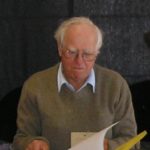 Four of us met by Zoom on Saturday, 1st June to read Paper 92. We took it in turn to read a section at a time.
Four of us met by Zoom on Saturday, 1st June to read Paper 92. We took it in turn to read a section at a time.
There was some discussion of the final paragraph of the first section about the “agencies that have long functioned on Urantia, and they will continue here as long as this planet remains an inhabited sphere”. We were uncertain under what circumstances Urantia would cease to be inhabited. We could only speculate about the possible extermination of our population.
We took note of how primitive religion grew from the fear stimulus. The love stimulus came with revealed religion. We were also interested to be reminded of the large number of strange rites and rituals which primitive religion has adopted over the years. And also to be reminded again that although religion has often retarded progress, progress itself would be inconceivable without religion.
We noted the various revelations from which our planet has benefited over the millenniums, and also remarked on the expressed hope that future revelations will concentrate less on strengthening conflicts between religious outlooks than on finding the common ground they share. We felt it important to note the fifth epochal revelation is accompanied with the proviso that, as with all revelations, it is partial and incomplete, and that no revelation short of the Father himself can ever be considered complete. It was interesting to us that both Islam and Sikhism are more recent than Christianity. And we found it interesting—and a little deflating—to realise that we know very little about most of the composite religions listed.
We were not surprised to read that ancestor worship is so prominent a barrier to progress in parts of Asia, and that in the Occident it has resulted in nationalistic religions which are a throwback to earlier notions. And we took to heart in the warning about the fallacy of regarding our own religious attitude as The Truth—when we could profit from the study of all others.
We were enthusiastic about emphasizing the father/child relationship and how important it has been for most of us personally. It seems fundamental that we find the Father by accepting sonship with Him.
It was a most enjoyable study. We had some good discussions and benefited from them all.
William Wentworth
Sydney Study Group
Reported by Rita Schaad
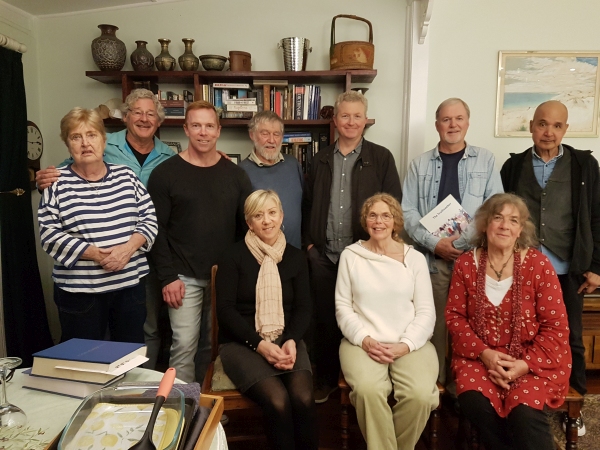 It was a very wet and wintery Saturday to meet in the cozy home of Kathleen and Trevor Swadling. There were ten of us enjoying a good catch up over some nibbles before we settled down to study.
It was a very wet and wintery Saturday to meet in the cozy home of Kathleen and Trevor Swadling. There were ten of us enjoying a good catch up over some nibbles before we settled down to study.
Considering that this chosen paper – The Later Evolution of Religion – was intended to lead us into the theme topic of the conference in Melbourne – Past, Present and Future – it certainly made us appreciate the many steps humankind has taken in its evolution and formation of a religion on Urantia.
Of course, the image of the big ship on the stormy seas fitted well with the explanation given of how the current generations have more change and adaptation to cope with than people had in the last two thousand years. Talking about the reason and purpose for this fifth revelation, someone mentioned that when the “book has done its job” we will be ready for more information. And this “job of the book”is done when its content has been seeded. I found that a grand idea. All gardeners know that when seeding and planting, certain conditions need to be right – soil, position, time of year etc. So when sharing the truths we glean from these pages it behooves us well to watch where and when we spread them abroad.
There were so many passages that we dwelled upon – like the need for re-evaluation of and by the main religions. Something which science has inbuilt in its methods, whereas the consciousness of man needs to be pressured into making religion relevant to the current society and its needs. Other evolutionary stepping-stones outlined were fascinating.
Religion enmothered much nonreligious culture: Sculpture originated in idol making, architecture in temple building, poetry in incantations, music in worship chants, drama in the acting for spirit guidance, and dancing in the seasonal worship festivals. 92:3.6 (1006.3)
We are standing on the shoulders of our ancestors yet again, acknowledging how difficult it was for them to overcome the fear of the unknown by holding onto olden rituals and symbols that are way past their ‘use-by’ dates.
Still – there is plenty to do in assessing our current belief systems and translating their meanings in our lives.
It looks like we will have many more discussions along these lines in Melbourne this October.
This paper stimulated a lot of deep thinking and conversation and, as always, it was great to meet and study face to face and have time for socialising throughout the day.
Melbourne Study Group
Reported by The Melbournites – Bevan, Dennis, Prue and Regina)
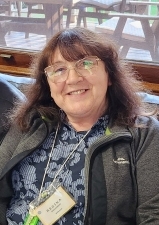 Every year readers of The Urantia Book meet face to face if possible, for the National Study Day. Therefore, a very small but very appreciative group, met on this first weekend of June over two days to enable all interested people to attend either Saturday or Sunday. The study of this paper gave us many insights and much to think about.
Every year readers of The Urantia Book meet face to face if possible, for the National Study Day. Therefore, a very small but very appreciative group, met on this first weekend of June over two days to enable all interested people to attend either Saturday or Sunday. The study of this paper gave us many insights and much to think about.
Some of our discussion revolved around:
- Religion is grudgingly slow to change, clinging to old forms that can, to modern day standards, seem barbaric and unacceptable. Even by law!
- There are no built-in systems for change. No study of current conditions, like science or social analysis to update their practices, and no room to consider any new revelation.
- We felt encouraged to look to the foundational truths in all current religions and be more tolerant, based on our priveledged revelation through The Urantia Book.
- One of our group was lovingly reminded that their reading of this very paper, casued her to accept that The Urantia Book was true. It was many years ago and was at a time of great personal challenge. The memory made her want to ‘dance around the table’. She didn’t, but we all joined in her gratitude.
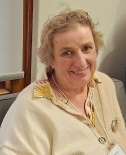 Man possessed a religion of natural origin as a part of his evolutionary experience long before any systematic revelations were made on Urantia. But this religion of natural origin was, in itself, the product of man's superanimal endowments. Evolutionary religion arose slowly throughout the millenniums of mankind's experiential career through the ministry by the following influences operating within, and impinging upon, savage, barbarian, and civilised man:
Man possessed a religion of natural origin as a part of his evolutionary experience long before any systematic revelations were made on Urantia. But this religion of natural origin was, in itself, the product of man's superanimal endowments. Evolutionary religion arose slowly throughout the millenniums of mankind's experiential career through the ministry by the following influences operating within, and impinging upon, savage, barbarian, and civilised man:
The Adjutant of worship…
The Adjutant of wisdom…
The Holy Spirit…
The co-ordinate functioning of these three divine ministrations is quite sufficient to initiate and prosecute the growth of evolutionary religion. 92:0.1 (1003.1-5) (emphasise added)
 Such a great explanation of an evolutionary religion in only a few paragraphs of the introduction of this paper gave us a lot to talk about. The following seven sections offered more information of the steps the evolutionary mortals took in forming their cultural mores, the emergence of leaders and the acceptance of the gift of revelation in place of superstition and fear.
Such a great explanation of an evolutionary religion in only a few paragraphs of the introduction of this paper gave us a lot to talk about. The following seven sections offered more information of the steps the evolutionary mortals took in forming their cultural mores, the emergence of leaders and the acceptance of the gift of revelation in place of superstition and fear.
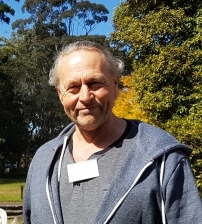 Paper 92 is like a treasure-chest, and we had a lot of discussion throughout this very interesting study; it was a great weekend for all of us – and, as is usual for us, we ended up in a cafeteria for socialisation.
Paper 92 is like a treasure-chest, and we had a lot of discussion throughout this very interesting study; it was a great weekend for all of us – and, as is usual for us, we ended up in a cafeteria for socialisation.
This book changes lives.
Bevan, Dennis, Prue and Regina
|
|
Frances Potter, NZ 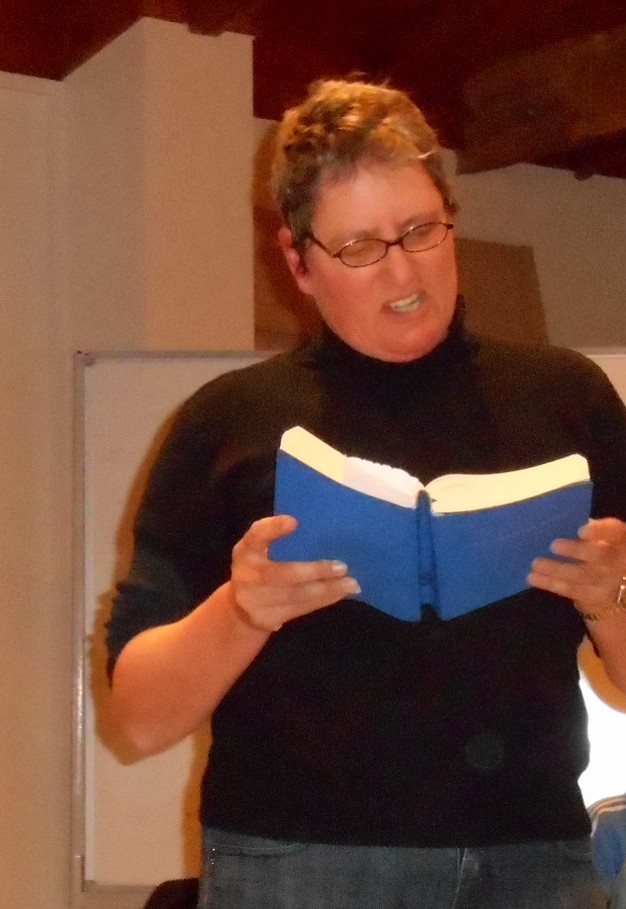 It’s easy to feel insignificant when you are a New Zealander. We are a small country, stationed at the end of the world, a long way from the turmoil in Europe, with its influxes of refugees and constant economic and political readjustments. Although we have finally joined the rest of the world in being subject to a horrifying race-based terrorist attack, we are protected by distance from the major theatres of war and are a very minor power when it comes to trade agreements, military alliances and political influence. We are a little fish in a very big sea.
It’s easy to feel insignificant when you are a New Zealander. We are a small country, stationed at the end of the world, a long way from the turmoil in Europe, with its influxes of refugees and constant economic and political readjustments. Although we have finally joined the rest of the world in being subject to a horrifying race-based terrorist attack, we are protected by distance from the major theatres of war and are a very minor power when it comes to trade agreements, military alliances and political influence. We are a little fish in a very big sea.
All the same, our reputation is for creativity and ingenuity in the face of hardship. We have always punched above our weight in areas of niche expertise, and as well as excelling in sport – every now and then we produce an exceptionally famous mountain climber or physicist. But more importantly, we have often been willing to stand up for our principles in the face of significant pressure. We were the first nation to grant women the vote. And despite our military alliances with some of the greatest powers of the world, we still do not allow nuclear warships to visit our shores. Perhaps our anti-nuclear position is tolerated because we cooperate with our allies in other significant ways; or perhaps they just like our dairy products so much that they can’t risk losing us to China. Whatever the case, despite our small stature internationally, we have shown the world that it is possible to take a principled stand on what we consider to be a moral issue; it is possible to say “no” to powerful friends, and it is possible to be diminutive in size and still lead by example. Hopefully we have gained respect and made a difference by choosing to “swim against the tide”.
I like to think that New Zealand’s small local Urantia Book readership is doing something similar. Again, we are small in numbers; and only a fraction of those who read the book in New Zealand show up for our fortnightly zoom meetings. We struggle with the same issue facing community groups everywhere – how to attract young people into our existing organisations in order to preserve the knowledge capital painstakingly acquired, and stave off the eventual collapse of the group. Perhaps this is unavoidable, and even necessary? It is certainly hard to know how to hand over the baton when there are so many competing influences vying for the attention of our youth – especially the internet with all its brilliant advantages and terrible pitfalls.
The current tsunami of gender-dysphoric youth demonstrates not only the potential negative power of “vicious minorities” (70:12:11) but also the struggle for real quality of thought. “At first life was a struggle for existence; now, for a standard of living; next it will be for quality of thinking, the coming earthly goal of human existence.” (81:6.28) Fake news abounds; AI can make anything look real. Paper 99 – Social Problems of Religion – tells us:
The social ship has steamed out of the sheltered bays of established tradition and has begun its cruise upon the high seas of evolutionary destiny; and the soul of man, as never before in the world’s history, needs carefully to scrutinize its charts of morality and painstakingly to observe the compass of religious guidance.” 99:1.3, (1086)
Clearly, split infinitives provide no obstacle to continued progress, but for the average mortal, it is hard to know how best to contribute to the process, particularly when the traditional Christian message is so desperately unfashionable.
It goes without saying that few of us can hope to have any effect whatsoever on the mammoth issues besetting the world: centuries old racial conflicts and wars between superpowers. For the average mortal with limited personal influence, all that stuff is the domain of the Seraphic Planetary Government and the Reserve Corps of Destiny (see Paper 114). I believe we do enough by believing in “the fatherhood of God, and the brotherhood of man” demonstrating our belief in this ultimate message through social service and the way we treat our fellows, and standing up for our principles as best we can.
I believe we also serve by seeking the company and support of like-minded others and by each striving in our own way to find a socially fragrant way of living. Our small readership group has been going for so many years now that we have become warm friends. Our yearly get-togethers provide a refreshing opportunity to deepen those friendships, to learn from each other’s experiences and to practice tolerance and the arts of social adjustment which are so necessary to fostering group harmony in any environment. These are all qualities we take out into the world with us in our lives outside the group. Even if we are small in number, and it seems we are often “swimming against the tide”, we are truly being New Zealanders, and as usual, although there are not many of us, we do have an effect. By continuing to read the book together and continuing to share opportunities for fellowship, we are contributing to social evolution in ways we cannot predict but can be confident about. “The act is ours: the consequences God’s”. (556:13)
|
|
Andrew Swadling, NSW
(This is adapted from a presentation by Andrew Swadling at the 2023 Conference in Sydney)
 As the topic of this conference is all about improving our ability to communicate the teachings, principles and values found in The Urantia Book, I thought we should investigate ways of learning to understand people first. Whether talking to existing readers, new readers, or non-readers of the book, it’s important that we learn to discern what kind of person we are communicating with and how receptive they may be to your message before you decide on what to say or how you’re going to say it. The last thing people want is to be preached at, or to be bamboozled with too much strange content. You need to try to figure out what kind of language and approach you’re going to use which will be different for each person. Therefore, we need to take the time to get to know them a little bit, listen well, and discover what kinds of things interest them.
As the topic of this conference is all about improving our ability to communicate the teachings, principles and values found in The Urantia Book, I thought we should investigate ways of learning to understand people first. Whether talking to existing readers, new readers, or non-readers of the book, it’s important that we learn to discern what kind of person we are communicating with and how receptive they may be to your message before you decide on what to say or how you’re going to say it. The last thing people want is to be preached at, or to be bamboozled with too much strange content. You need to try to figure out what kind of language and approach you’re going to use which will be different for each person. Therefore, we need to take the time to get to know them a little bit, listen well, and discover what kinds of things interest them.
There are many examples in The Urantia Book where character traits are mentioned, particularly in the case of the twelve apostles. We are also told about the nature and temperament of other characters, races, and heritage which highlight a level of importance given to the psychological inheritances and innate urges in individuals and races.
Temperament
Definition: a person's or animal's nature, especially as it permanently affects their behaviour.
Here are some examples of the temperaments of some characters and races mentioned in The Urantia Book:
“[Gabriel] decided that the Hebrews possessed those relative advantages which warranted their selection as the bestowal race.”
“Of all couples living in Palestine at about the time of Michael’s projected bestowal, Joseph and Mary possessed the most ideal combination of widespread racial connections and superior average of personality endowments.”
Joseph, thefather of Jesus, came from a family that “… belonged to a long and illustrious line of the nobility of the common people…” He was a “…a mild-mannered man, extremely conscientious, and in every way faithful to the religious conventions and practices of his people.” “He talked little but thought much.” “…he was subject to periods of mild spiritual discouragement.” “These temperamental manifestations were greatly improved just before his untimely death and after the economic condition of his family had been enhanced…”
Mary, the earth mother of Jesus, “…was a descendant of a long line of unique ancestors embracing many of the most remarkable women in the racial history of Urantia.” “Mary’s temperament was quite opposite to that of her husband.” “She was usually cheerful, was very rarely downcast, and possessed an ever-sunny disposition.” “Mary indulged in free and frequent expression of her emotional feelings and was never observed to be sorrowful until after the sudden death of Joseph.” “But throughout all this unusual experience Mary was composed, courageous, and fairly wise in her relationship with her strange and little-understood first-born son and his surviving brothers and sisters.”
Here is a particularly interesting quote on one of the apostles, Philip the Curious:
“Jesus well knew that, if he once rebuked Philip for asking these annoying questions, he would not only wound this honest soul, but such a reprimand would so hurt Philip that he would never again feel free to ask questions.”
Apostles Character Traits
Following is a summary of some of the character traits of each of the apostles as described in The Urantia Book:
Andrew
“Andrew was a good organizer but a better administrator.”
“Of all the apostles, Andrew was the best judge of men.”
“…a great gift for discovering the hidden resources…”
“…a man of clear insight, logical thought, and firm decision, whose great strength of character consisted in his superb stability.”
Simon Peter
“…well known … as an erratic and impulsive fellow.”
“…a man of impulse, an optimist.”
“…he persisted in speaking without thinking.”
“Peter was a fluent speaker, eloquent and dramatic.”
“…a natural and inspirational leader of men, a quick thinker but not a deep reasoner.”
“Peter did not have a deep mind...”
James Zebedee
“…he seemed really to possess two natures, both of which were actuated by strong feelings.”
“He had a fiery temper when … adequately provoked…”
“Next to Peter, unless it was Matthew, James was the best public orator among the twelve.”
“…no sense moody, he could be quiet and taciturn one day and a very good talker and storyteller the next.”
“…ability to see all sides of a proposition. ”
John Zebedee
“…he was prompt and courageous, faithful and devoted.”
“…greatest weakness was this characteristic conceit.”
“…John of after years was a very different type of person than the self-admiring and arbitrary young man…”
“…man of few words except when his temper was aroused. He thought much but said little.”
Nathaniel
“…he was both honest and sincere.”
“…weakness of his character was his pride”
“…in the proper mood, he was probably the best storyteller among the twelve.”
“…would relieve the tension by a bit of philosophy or a flash of humor; good humor, too.”
“… was the odd genius of the twelve.”
“…was the apostolic philosopher and dreamer, … a very practical sort of dreamer.
“… alternated between seasons of profound philosophy and periods of rare and droll humor.”
Matthew Levi
“…a good businessman, a good social mixer, and was gifted with the ability to make friends…”
“…keen judge of human nature and a very efficient propagandist.”
“Matthew’s weakness was his shortsighted and materialistic viewpoint of life.”
“He did all his financial work in a quiet and personal way…”
Thomas Didymus
“…possessed a keen, reasoning mind…”
“…a streak of suspicion which made it very difficult to get along peaceably with him.”
“…he was superbly honest and unflinchingly loyal.”
“…a natural-born faultfinder and had grown up to become a real pessimist.”
James and Judas Alpheus
“…understood very little about the philosophical discussions or the theological debates…”
“…two men were almost identical in personal appearance, mental characteristics, and extent of spiritual perception.”
“…always were they ready to lend a helping hand…”
“Their minds were not of a high order”
“…good-natured, simple-minded helpers, and everybody loved them.”
“…twins served faithfully until the end…”
Simon Zelotes
“He was a fiery agitator and was also a man who spoke much without thinking.”
“Simon’s strength was his inspirational loyalty. ”
“Simon’s great weakness was his material-mindedness.”
“Although Simon was a rabid revolutionist, a fearless firebrand of agitation, he gradually subdued his fiery nature…”
“He was a rebel by nature and an iconoclast by training…”
Judas Iscariot
“He was a good thinker but not always a truly honest thinker.”
“…not really sincere in dealing with himself.”
“Judas was a good businessman.”
“…he had exaggerated ideas about his self-importance.”
“He had loose and distorted ideas about fairness…”
“He never seemed to see very far into any proposition.”
“…lack of imagination was the great weakness of his character.”
“…strongest characteristic was his methodical thoroughness; he was both mathematical and systematic.”
“He was not pessimistic; he was simply prosaic.”
The Six Sangik Races
Here are some traits of the six Sangik Races as described in The Urantia Book.
Red: “…tendency of their ancestors to fight among themselves…”
Orange: “…outstanding characteristic of this race was their peculiar urge to build…”
Yellow: “…first to abandon the chase, establish settled communities, and develop a home life…”
Green: “…was one of the less able groups of primitive men…”
Blue: “…nor did they ever completely overcome their tendency to fight among themselves.”
Indigo: “…did not entirely lose the desire to worship the Unknown...”
Discovering Personality Types and Temperaments
There are many modern methods that can help us understand and define certain types of temperaments or personalities. These methods are not there to define a person; however, they do help in understanding innate or well-established tendances.
In addition to understanding others, recognising your own personality type can help to highlight strengths and weaknesses for further development. Who knows, you may even change and improve habits for the next generation.
Following are two of the well trusted methods for discovering personality traits that may help understand a person better before trying to tell them about the Urantia teachings.
Big Five Personality Traits
This method is sometimes known as "the Five-Factor model of personality". It is a grouping of five unique characteristics used to study personality. It has been developed from the 1980s onward in psychological trait theory. (see: Big Five Personality Traits)
Starting in the 1990s, the theory identified five factors and ten values. Each of the five factors are broken up comparatively with two of the identified values. These factors and values are as follows:
- Conscientiousness (efficient/organized vs. extravagant/careless)
- Agreeableness (friendly/compassionate vs. critical/rational)
- Neuroticism (sensitive/nervous vs. resilient/confident)
- Openness to experience (inventive/curious vs. consistent/cautious)
- Extraversion (outgoing/energetic vs. solitary/reserved)
Myers-Briggs Type Indicator (MBTI)
The MBTI was constructed by two Americans: Katharine Cook Briggs and her daughter, Isabel Briggs Myers, who were inspired by the book Psychological Types by Swiss psychiatrist, Carl Jung. Isabel Myers was particularly fascinated by the concept of introversion, and she typed herself as an "INFP" (see the following three diagrams for descriptions of acronyms.) However, she felt the book was too complex for the public, and therefore she tried to organize the Jungian cognitive functions to make it more accessible.
MTIB Personality Types Key
Here is a table for instructions on how to work out a person’s personality type by using this key.
Personality Types
Going by the above table, you can figure out a general overview of a person’s personality by choosing the top four traits you consider the person to have by combining one trait from each column in a quadrant. Then work out the Personality Type by using these formulas:
The 8 Personality Forming Qualities:
E = Extraversion, T = Thinking
I = Introversion, F = Feeling
S = Sensing, J = Judging
N = Intuition, P = Perceiving
Therefore the 16 categories of Personality Traits according to Myers-Briggs are:
ISTJ = The Inspector, ISFJ = The Nurturer, INFJ = The Counsellor, INTJ = The Mastermind
ISTP = The Craftsman, ISFP = The Composer, INFP = The Idealist, INTP = The Thinker
ESTP = The Doer, ESFP = The Performer, ENFP = The Champion, ENTP = The Visionary
ESTJ = The Supervisor, ESFJ = The Provider, ENFJ =The Giver, ENTJ = The Commander
You may find it helpful to honestly work through the MBTI components for yourself. If you wish to take a Big Five test, and obtain more detailed results about yourself, you can do this online (here).
Influencing Factors
In addition to all the above, let’s not forget that there are also influencing factors to take into account such as environment, culture, circumstances, relationships, motivations, education, health, revelation and mood.
And how do we read all the variables?
Learn < > Respond < > Relate < > Adjust < > Restrain < > Persist
The more we understand of ourselves and others, the better chance we have of perfecting the art of communication and truly obtaining mutual understanding. And the more we understand a person, the better equipped we should become in communicating the teachings of the revelation in a way that will engage rather than repel.
|
|
Rita Schaad, Newcastle
The Method of Seed Planting and Expansion
How did Humanity evolve and Societies expand
(Presented at the 2023 Conference in Sydney)
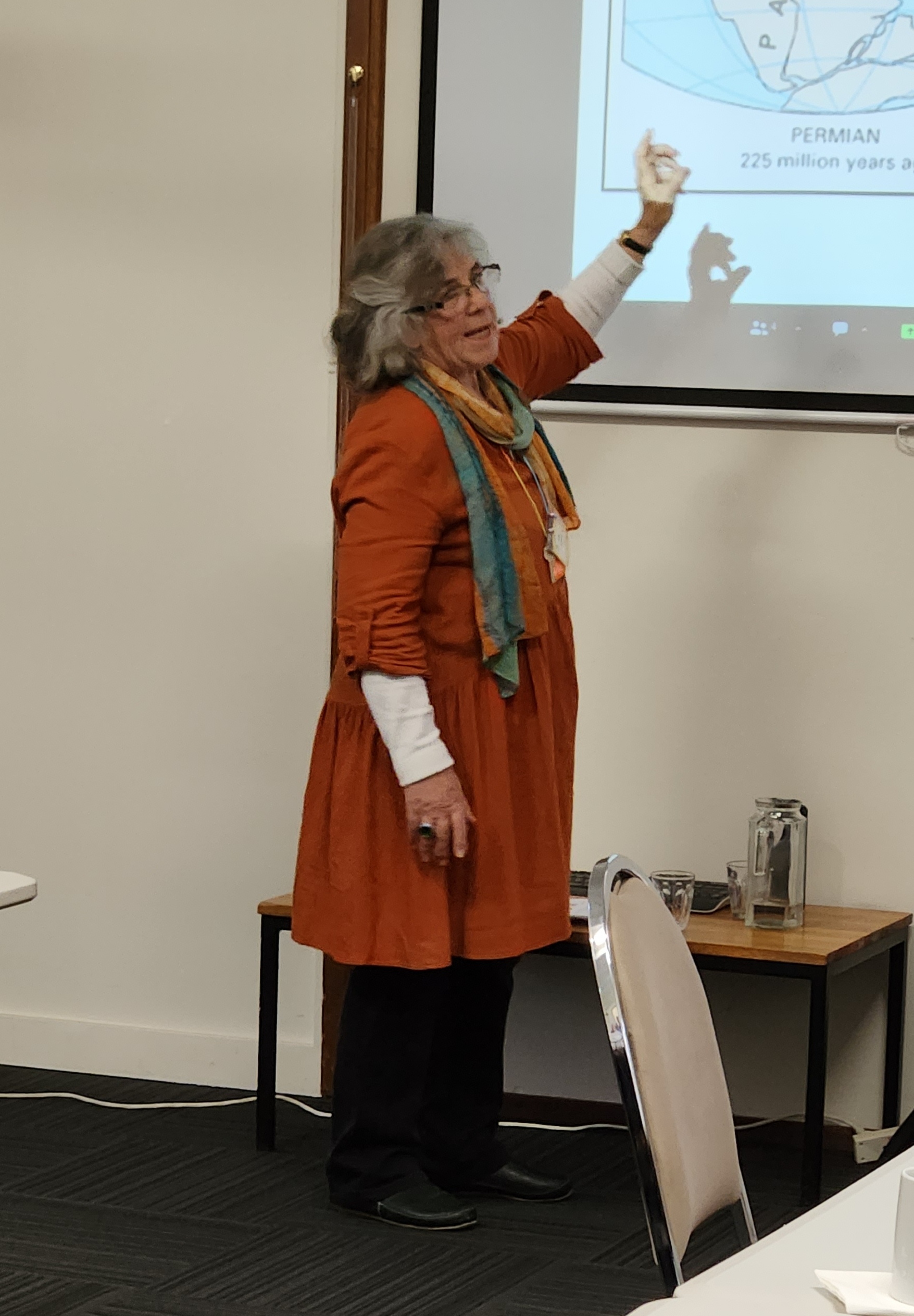 The aim of this presentation was to summarize the huge story of our evolution and then to give the attendees opportunity to discuss and work on some of the topics, like the Andonite expansion, the Dalamatia times, the coloured races, the Edenic Garden and the Andite dispersion.
The aim of this presentation was to summarize the huge story of our evolution and then to give the attendees opportunity to discuss and work on some of the topics, like the Andonite expansion, the Dalamatia times, the coloured races, the Edenic Garden and the Andite dispersion.
Some worksheets, maps and tables were prepared for groups to workshop with, hoping to find parallels and problems of humanity and society that reverberate to this day and how best we can bring these kinds of stories of our evolutionary past into the discourse today.
View Presentation in PDF
|
|
Stephen Carthew, SA 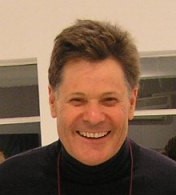 A while back I awoke with a thought which I expressed in my notebook in the following strange sentence:
A while back I awoke with a thought which I expressed in my notebook in the following strange sentence:
I’m happy to be an Agondonter – one who believes without seeing. i.e. not clairvoyant. I am thankful for sustaining faith and the forgiveness of God – without it I would be a Humpty Dumpty.[1]
The Urantia Book only has one reference to the strange but rather intriguing word ‘Agondonter’ the definition being: …evolutionary will creatures who believe without seeing, persevere when isolated, and triumph over insuperable difficulties even when alone. Rewards of Isolation 50:7.6 (578)
‘Without seeing’ can be a good thing in this isolated world; too many dreams and visions, or all-too-real experiences with angels or extraterrestrials, can make life much more difficult than it needs to be. Mystics sometimes go mad, or even become bad as a result of believing what ‘comes through’ to them or what they ‘have seen’. Acting on such ‘seen’ information as if it were true just because a dream or vision or person who had an ‘experience’ with an off- planet being, an angel, an ancestor or a ‘spirit guide’, could be most misleading, and create all sorts of unnecessary dramas. God knows there are enough in daily life.
I am glad not to have such mystical problems. I’m a spiritual-experience dead-head. And am happy to be so. For me it’s good not to have the complications associated with such ‘spiritual experiences’ or a guru to follow who is felt to be an conduit to God. I think I would become unbearable if I were driven by an experiential knowing derived from someone outside of myself – an ‘authority’ from the spiritual world who confers absolute knowing.
I want to be able to question what I might think as me, myself and I – using a combination of scientific logic, philosophic wisdom and spiritual values as my yardstick for measuring facts, ideas, and ideals that I come across in my life. The section on Mysticism, Ecstasy and Inspiration on the easy-to-remember page 1000 has been enormously helpful to my Agontonterish faith that helps me to be happy little Agondonter.
[1] I researched Humpty Dumpty and found this amongst the many interpretations:
Humpty Dumpty is a meditation on the fleeting nature of power and the risk that comes with any position of authority…Consider that if he had not been alone on his wall, others would have been nearby to reach out and catch him. But balanced at the top, there was no help. Only a desire to push or pull him down so that someone else could enjoy the view … according to one school of thought, artistic intent is less important than the experience of the audience in interpreting the meaning behind any work. (Joseph Reinemann)
|
|
Julian McGarry. TAS
(Presented at the 2024 ANZURA Conference)
 In a world that is desperate for good news, it is critical that we, as faith sons and daughters of the Universal Father and students of The Urantia Book, learn how to adorn our message of hope to ailing humanity with truth, beauty, and goodness. To achieve this, we need to find answers to the following pivotal questions: firstly, what should be the nature of the message that we want to convey to our fellows, and secondly, how should we go about doing it? These are the questions I wish to address in this article.
In a world that is desperate for good news, it is critical that we, as faith sons and daughters of the Universal Father and students of The Urantia Book, learn how to adorn our message of hope to ailing humanity with truth, beauty, and goodness. To achieve this, we need to find answers to the following pivotal questions: firstly, what should be the nature of the message that we want to convey to our fellows, and secondly, how should we go about doing it? These are the questions I wish to address in this article.
It is natural in our enthusiasm for The Urantia Book, the fifth epochal revelation, to assume that we should be encouraging individuals to read this book, replete as it is with a panoramic description of the ascending career, an unparalleled account of the life of our Master, Michael of Nebadon, and answers to almost every question that we have ever asked about God. However, would this be wise? Is it possible that rather than enlightening people, we might inadvertently frighten them away? Indeed, two crucial supplementary questions we need to ask with respect to preaching and teaching are: what does our Master, Michael of Nebadon want us to do and how can we learn from his example when he incarnated on our planet as Jesus of Nazareth?
Click on the link to see the PDF of Julian’s full presentation at: Adorning Message
|
|
Neil Francey, QLD
A Religious Trend
 Pew Research Center in August 2023 found that about 28% of U.S. adults are religiously unaffiliated, describing themselves as atheists, agnostics or “nothing in particular”. This group is often called the “nones”. The survey data shows, a) Most nones believe in God or another higher power, but very few go to religious services regularly. b) Most say religion does some harm, but many also think it does some good. They are not uniformly anti-religious.
Pew Research Center in August 2023 found that about 28% of U.S. adults are religiously unaffiliated, describing themselves as atheists, agnostics or “nothing in particular”. This group is often called the “nones”. The survey data shows, a) Most nones believe in God or another higher power, but very few go to religious services regularly. b) Most say religion does some harm, but many also think it does some good. They are not uniformly anti-religious.
This none bloc has grown from about 5% of Americans in the early 1990s to nearly 30% today. The majority of nones once identified themselves as Christians. And it is estimated that church congregations have decreased in number by about 40 million.
Where will these people now find their religious solace? How will they find avenues for social and philosophic sharing? The world is in need of groups of people aspiring to highest values that override class and racial lines, with hope for a better society beyond the deteriorating factors prevailing today.
With the social changes, varying in each age group, religion has to attract people anew in today’s clamoring society. How is religion to function practically in people’s lives? If we consider that The Urantia Book would have some appeal to these cohorts, then what can be done to make the existence of the book known to them?
The Spiritual Challenge
The revelation is administered by the Urantia Foundation, and its outreach social program is conducted by Urantia Association International. Each organization is well established and have structures to maintain and present The Urantia Book to interested individuals.
Although each has a strong web presence, they suffer from the usual restrictions imposed by their organizational formats. Do either of these organizations reach out to the wider community? This need not be a promotional effort but perhaps a function of providing information in a general sense.
Is it now timely to advise the world that a revelation has been given to mankind? Even if people show little interest, even if it would not generate a surge in personal spiritual quests, perhaps it will fundamentally alter the human perception of the purpose of life and the scope of the universe.
And perhaps the world may start to wisely identify some of the main problem areas currently faced by civilization, and sincerely seek solutions.
A Urantia Information Center
Centrally organized Information Centers might provide a grassroots approach by small groups to engage in general outreach and social media activity. A minimal structure of local leadership and management would be required. In most cases it would be a formalization of activity already being done by local organizations and study groups, but on a more proactive basis. It could be done at minimal cost, with records kept.
New procedures to communicate to the various levels of interest would be an ongoing task. Manuals, guidelines, aims, information packages, and related derivative works can be developed. At all times it should be noted that it is an information service only. It does not provide counselling, referral, or advisory services.
Some of the primary requirements for people to have would be:
- an excellent understanding of The Urantia Book,
- able to refer people to a section of the book of immediate
relevance to their enquiry,
- answer questions about the origin and status of the book and its teachings,
- knowledge of the work of the Urantia Foundation, Urantia Association, and other Urantia organizations,
- knowledge of the functioning of Urantia Book forums
and all aspects of social media,
- refer people to an appropriate Urantia organization or nominated
person in the local area for ongoing contact,
Plan B
Could this plan be about a Urantia Association International Information Center? The Urantia Association does have a Long-Range Plan. Details of this are included in its 2023 Annual Report under the heading of Looking Ahead:
“The first step in our Long-Range Plan (LRP) is working together to assist our constituents in over 30 countries by identifying their needs and setting up ways to help all of them accomplish the mission. This objective is now highlighted in the plan as mentioned in the December Tidings.
“One of the first goals is for constituents to work together and share their common experiences in order to improve the effectiveness of our organization.
“The second front of the LRP is to establish strategies in countries where we do not have a National or Local Association and then work hard to build one. This is how we can ensure that we reach every single corner of the world to disseminate the teachings.
“This is a highly challenging project that will require a lot more resources and volunteers than we currently have available, but we are confident in your ongoing support of these ambitious plans.
“Regular meetings are being held to discuss how best to actualize these plans. Special committees are being formed to focus on specific aspects such as developing a more interactive and engaging mentorship platform and making it more accessible to everyone. Another is to find volunteers well-versed in The Urantia Book to engage with budding truth seekers. We will continue to report on our progress throughout the year.”
What Services Will These Institute Students Provide?
The Urantia University Institute is is a global center of study and service dedicated to ‘training teachers and farseeing leaders, and fostering a spiritual community with cosmic ideals based on truths in The Urantia Book’.
The Institute states:
“Following several years of development and testing by a team of curriculum developers and experienced students from the major Urantia organizations, The Urantia Book Teacher Education Program (TEP) is now accepting applications for the 2024 - 2025 academic year.
“The hybrid one-year training program features a five-day, in-person orientation and training session at Urantia Foundation, followed by three trimesters of online study and weekly training and discussion sessions on Zoom. It is designed for people who are serious students of the Urantia revelation with a track record of participation in study groups and Urantia Book education.”
These people should become well qualified to manage Information Centers.
In Conclusion
Information Centers would provide an opportunity to ‘control the narrative’. The revelation is at a precarious stage. It currently remains primarily a person-to-person contact format which is offering a degree of protection to its mission.
As discussion expands to a less informed audience, a whole range of responses is becoming evident. That is, the book and its readers are getting all sorts of comments about its authenticity and role, and the readers themselves. Rather than let any such adverse directions escalate, some form of ‘official’ outreach program needs to exist.
Think of the tens of thousands of people around the world presently paid to set and sell agendas, protect vested interests, and cancel people and organizations who speak out against a controlled position on any topic. This is a powerful and negative instrument that is usually being used against truth, and could even target the revelation. Such a setback would extend over a long period of time. Our planetary history shows that the partial default of revelations is not uncommon.
There are many people who are ready to find the book but who are unaware of it, and unable to discover it online or through a friend. Try searching for such a record of truth. By not informing the world about the book, we are denying people the opportunity to discover truth and possibly advance their ascension careers.
As Usual the Book Gives Us a Beautiful Summation:
Urantia society can never hope to settle down as in past ages. The social ship has steamed out of the sheltered bays of established tradition and has begun its cruise upon the high seas of evolutionary destiny; and the soul of man, as never before in the world’s history, needs carefully to scrutinize its charts of morality and painstakingly to observe the compass of religious guidance. The paramount mission of religion as a social influence is to stabilize the ideals of mankind during these dangerous times of transition from one phase of civilization to another, from one level of culture to another. 99:1.3 (1086.6)
|
|
Neil Francey, Qld, Goldcoast 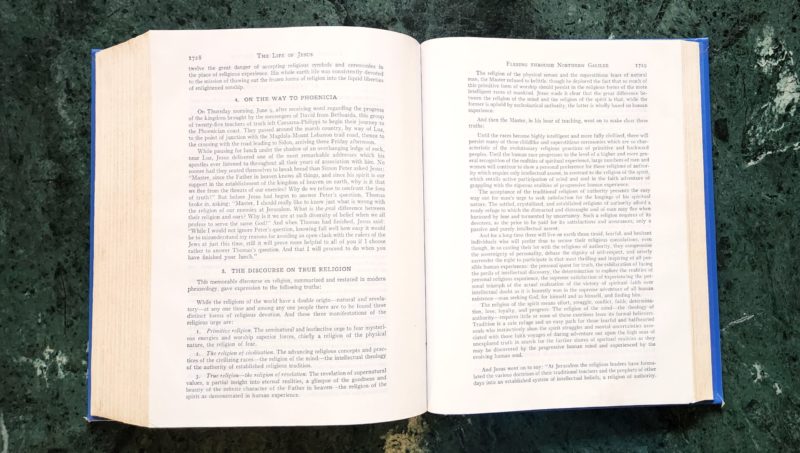 The publication being considered is The Urantia Book, first published in 1955 by the Urantia Foundation in Chicago, USA. Attention is given to the role of the revelators and the people involved in the receipt of the Papers. This analysis also intends to show the book is a genuine revelation to mankind, notwithstanding its detractors and its perilous though prevailing journey.
The publication being considered is The Urantia Book, first published in 1955 by the Urantia Foundation in Chicago, USA. Attention is given to the role of the revelators and the people involved in the receipt of the Papers. This analysis also intends to show the book is a genuine revelation to mankind, notwithstanding its detractors and its perilous though prevailing journey.
Some people who knew about the writings may not have realized the significance of their content. So thirty possible misconceptions about the Papers are listed. However such misplaced notions may have supported rather than prevented the eventual publication. Then revelatory concepts in the book are listed. In a final section, the influence of the teachings of Jesus in the world today is considered.
We are thankful to those wise and farsighted people who were dedicated to the secure custody and eventual publication of the Urantia Papers. Opposition still comes from many quarters: Non-religionists, those who might want to persecute Christians, religionists who feel threatened by a new text, and official types of agencies that fear losing control of the public mind set.
For varying reasons discussed in this article, the opponents even to this day, are not succeeding. So those who thought the text might support their self-interests, or the revelation might only be a benign influence in the world, must now concede the revelation is progressing globally.
This is true because the content of The Urantia Book does have that capacity to generate spiritual momentum. It is inspiring individuals who in turn can transform society for the betterment of people, and to the detriment of any unfair authority which denies God and the true purpose of the life of Jesus.
The revelation speaks of a religion of personal liberty of the spirit, and the individual’s direct relationship with a personal God. Be alert to any misuse. I trust that this at times satirical article, will assist in clarifying some of the major associated concepts, corrects misrepresentations, and validate the fact that The Urantia Book is a work beyond the capacity of the mortal mind.
© N R Francey 2021
View PDF of full essay
|
|
ANZURA Admin 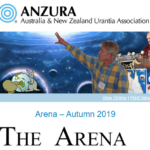 The Arena newsletter keeps students of The Urantia Book throughout Australia, New Zealand and the South Pacific in touch with Urantia related news, activities and events from our local region as well as from the global Urantia Book reader community. It also provides interesting articles written by readers on a wide range of subjects from the book which we hope may be helpful in assisting with your studies.
The Arena newsletter keeps students of The Urantia Book throughout Australia, New Zealand and the South Pacific in touch with Urantia related news, activities and events from our local region as well as from the global Urantia Book reader community. It also provides interesting articles written by readers on a wide range of subjects from the book which we hope may be helpful in assisting with your studies.
The Arena is published by ANZURA two to three times a year and is dedicated to the promotion of goodwill and understanding among readers of The Urantia Book. Articles and editorial contributions that relate to The Urantia Book and its teachings are welcome from readers all over the world.
If you would like to receive the Arena or submit an article, please send us an email at anzura.urantia @ gmail.com
To view current and past issues of the Arena click here.
ANZURA's Contact Details
ANZURA
P.O. Box 1581
Warriewood, NSW 2102
Australia
Phone: 0431 285 943 (from Australia) or +61 431 285 943 (international)
Email: anzura.urantia@gmail.com
Website: https://anzura.urantia-association.org
Please note: Any interpretations, opinions, conclusions, or artistic representations, whether stated or implied, are those of the authors and do not necessarily represent the views and opinions of ANZURA or the editorial team of the Arena.
|
|